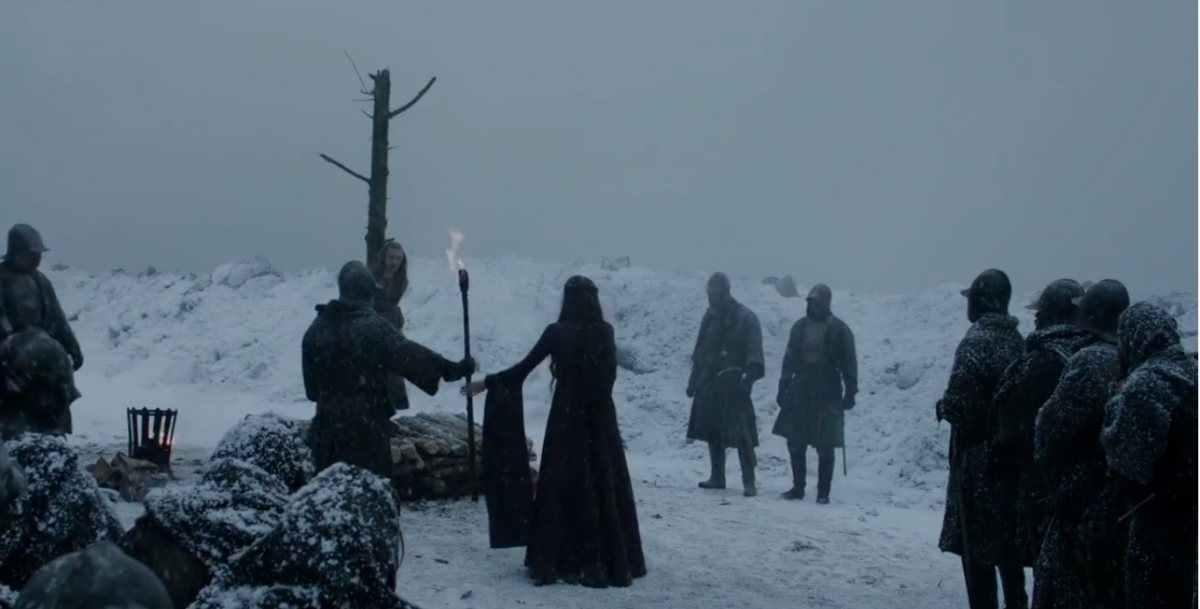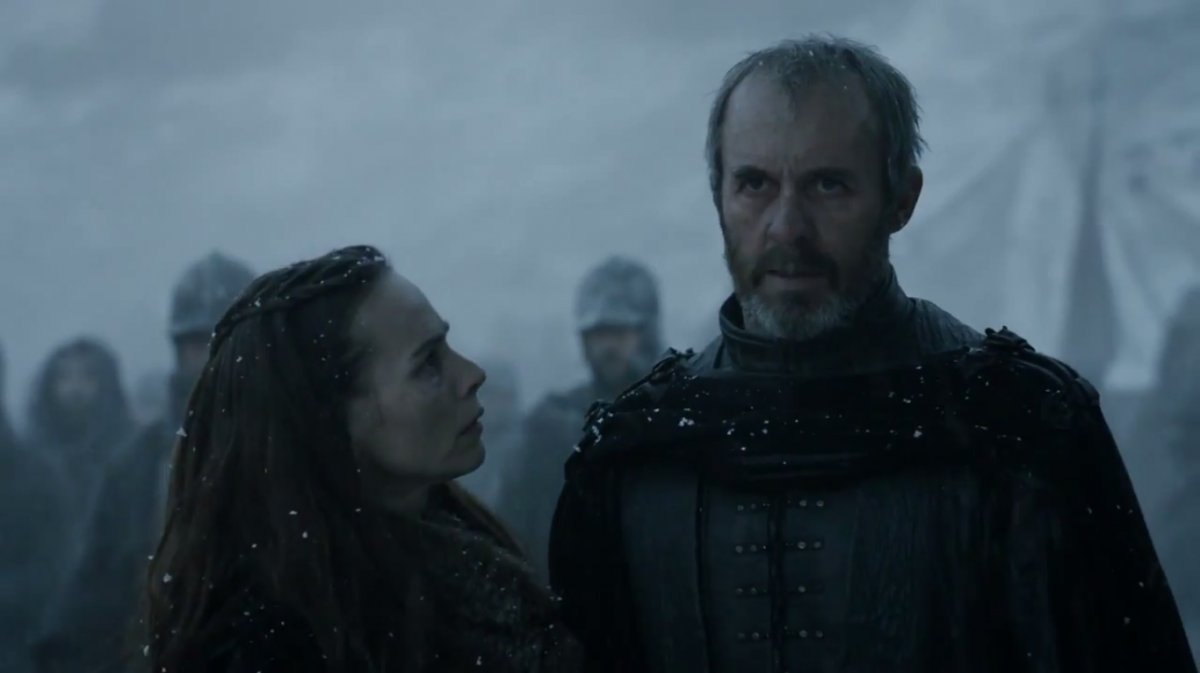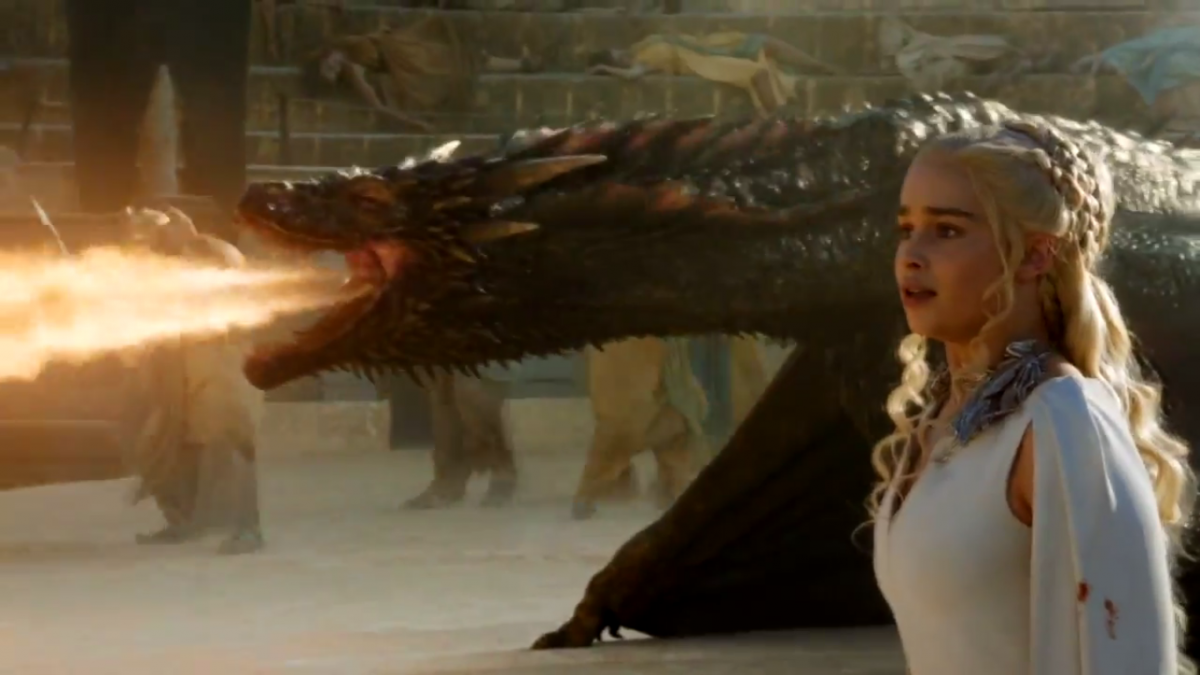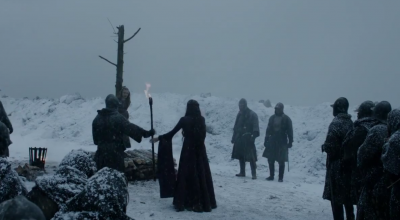As millions of other people nowadays I am a great fan of Game of Thrones. And the main reason for this is not the plot, the incredible cast, the locations, costume designs, post production or the twists in the story. It is the realism.
Yes, you read that correctly – its realism. Truly, this is a fantasy story – there are dragons, white walkers, face

changers, undead and giants. But all these are the requisites of the story, not its quintessential heart. The fundament of Game of Thrones is the interaction between its main protagonists and the people behind them – allies, lovers, assassins, and the members of family. And in these interactions the script writers have managed to inject and keep a level of authenticity that I have not seen in a TV production before. Or at least not on this scale and complexity.
All this changed last week, in the 49th episode of the series – The Dance of Dragons. It is ironic that the creators of the show chose the title of the fifth book of the series to name one of the most shocking episodes. Especially in the light of the drastic changes they are making to the plot of the novels. But do not get me wrong – I do not believe that George Martin’s books are the Holy Grail and they should not be touched, and the screenplay should follow their sequence page by page. On the contrary – some of the plot changes have been necessary for the good of the show.
But when you decide to make such a change you have to do it carefully. First of all, you will provoke the groan of thousands of fans who are not as liberal as me and do not agree with any deviation from the books arc. Second, you have to keep the integrity of the logics of the plot. Otherwise you might end up with too many loose strings to tie at a certain point.
My problem with The Dance of Dragons (the episode, not the book) was the scene with princess Shireen Baratheon and the choice of her father Stannis to sacrifice her to the Lord of Light. When we regard Game of Thrones – all five seasons of it – perhaps the first peculiar feature of its phenomenal success is the shock value of its best episodes. Ned Stark’s beheading, the Red Wedding, Viseris’ crown of gold, the Mountain vs the Viper or Bran’s fall from the tower. The last such shocking moment was the so called “Black wedding” and Sansa’s rape by Ramsey Snow.
What all these shocking episodes had in common was that they perfectly fit in the logics of the sequence and the plot. Even more importantly so – if we take them out of the fantasy setting of Westeros and transplant them in the Middle Ages, they will not be out of place. A powerful aristocrat challenges the legitimacy of a new-crowned king on the merit of his birthright and when he fails is sentenced to death – you can find numerous such cases in the medieval history of any Western kingdom. The trial by combat was a well-documented phenomenon and was even backed by the Church – and that it should end with the death of one of the contestants was the most logical of outcomes (remember Walter Scott’s Ivanhoe and the bout between the eponym hero and Brian de Bois-Guilbert). Most people thought the Red Wedding was over the top but it actually has historical counterparts in 15th-century England and in Italian history. Even marital rape, which caused such an outcry of anguish and disgust, was sadly a widespread practice in medieval Europe. Besides, Sansa and Ramsey are relatively the same age while in medieval marriages the bride was often 13-14 years old and her groom was 20 or even thirty years older.
Again, this argument does not apply to the episode with princess Shireen. No such thing could have happened in any Christian, Muslim or Buddhist country – if a ruler tried such an act he would have been excommunicated or deposed as insane. We do have two similar fictional examples by the most authoritative cultural references of western society – the Bible and Greek mythology. In the Old Testament God asks from Abraham the ultimate sacrifice – his son Isaac – as a proof of his devotion and piety. In Euripides Iphigenia at Aulis, based on the myths of the Trojan War, the king of kings Agamemnon is advised by the foreseer Calchas to sacrifice his daughter Iphigenia so that the gods grant him favourable winds for the assembled fleet to reach Troy (sounds similar?). In both cases however the divine power intervenes – God stops Abraham in the last moment and accepts the sacrifice of a lamb, while the Greek gods turn Iphigenia into a deer and she escapes death. Obviously the Lord of Light is not that benevolent.

But apart from being culturally unacceptable, the decision to sacrifice Shireen does not make any sense at all. What kind of an army would follow a fanatic general who gladly sacrifices his own daughter in order to get what he wants? What kind of a ruler would kill his only heir to the throne, the only person who could prolong his dynasty? And would that same general risk alienating not only his family, but also his most loyal servant who loves the little girl?
Set aside plot logics – the move was absolutely irrelevant from a psychological point of view. The screenwriters
have built one arc – Stannis’ love for his daughter and his unbending will to protect her from the evils that surround her. Now all of a sudden we have this shocking decision, which tries to convince the audience that he is mentally unstable. If we go back to the other shocking episodes of the series, they were once again backed up by bullet-proof psychological arguments – Joffrey’s hate for Ned Stark, Walder Frey’s hate for the Tullies, Oberyn Martell’s desire for revenge, Ramsey Bolton’s pathological inclination to violence. Stannis decision simply does not fall in line with the story.
So why did the creators of the show go for this choice? The answer is more simple than you might think – shock value. The audience knew that the episode would deal with Daenerys and the forthcoming crisis in Meereen. The people who had read the books or have checked the summaries of Book Five in Internet were aware of what was coming – the debacle at the fighting pits and Drogon’s triumphant return. But all this meant that the episode, no

matt
er how well scripted or shot could not shock its viewers – and that is what Game of Thrones has done better than anything else for the last five years. This is why the creative team had to come with something truly haunting – hence the decision to kill Shireen.
But if you do something for its own sake (in this case shock value) regardless of keeping the logical, psychological and cultural integrity of the story, you risk making a huge mistake. And in my opinion this is precisely what happened with The Dance of Dragons – it was a monumental blunder. The creators of the show might gloat now that no character is safe in the future, that everybody and everything is in danger. But so is the realism of Game of Thrones. And it is just not worth the price.

Leave a Reply